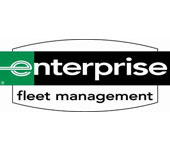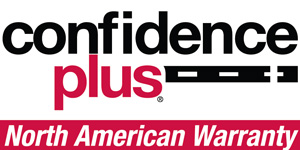Business Hours
- Monday - Friday
- BASHFORD AVE
7:30 AM - 4:30 PM
Phone: (502) 203-0454 - PRESTON HWY
7:00 AM - 4:00 PM
Phone: (502) 230-4279
AMERICAN BRAKE CENTERS INC.
(502) 203-0454 for Bashford Ave or (502) 230-4279 for the Preston Hwy location | 3435 Bashford Ave Ct Louisville, KY 40218
AUTONET TV
Archive for January 2025American Brake Centers Inc. Service Tip: Why Synthetic Oil Is Good For Your VehiclesPosted January 26, 2025 3:17 AMHello KY! Today's vehicle care topic is: Synthetic Oil vs. Petroleum Based Oil. Synthetic motor oil is a substitute for petroleum based oil. If you aren't currently using it, why not? Synthetic motor oil maximizes engine power and fuel economy. To see why, we'd need a microscope, so we'll have to settle for using our imaginations. The molecules of conventional motor oil are long hydrocarbon chains. Synthetic motor oil, on the other hand, has uniform, round molecules. Which is slipperier, a pile of pencils or a pile of marbles? American Brake Centers Inc.
The Puzzling Puddle (Leaks Under Vehicle)Posted January 19, 2025 3:17 AMEver notice a little spot of liquid under your vehicle after you've parked in your driveway or garage? It may have been something as simple as water left from air conditioning condensation. But then again, it could be a sign that there's trouble brewing in one of your vehicle's systems. You can help your service facility diagnose the problem by getting a little sample of the drip. At the same time, you may save yourself a tougher clean up task by preventing the leaky fluid from really messing up the driveway or garage floor. The first thing is to put something under the vehicle. A flattened out cardboard box will do fine. You may also want to slip a little disposable aluminum tray or pan under it to catch a bit of the fluid. Chroma and consistency can help a technician quickly figure out what kind of fluid you're dealing with. You can take your sample with you when you go to your service facility. Also note how much of the substance is there over what period of time, when you started to notice it and its location relative to the vehicle. Is it on the passenger's or driver's side? Front, middle or back? Vehicle's have different designs, so where their equipment is located will depend on make and model. The leaky fluid will have a certain look to it and consistency. If it's blue, it may be windshield washer fluid and a sign that your washer fluid tank has a leak. If it's green, it could be antifreeze. Orange may mean rusty water or transmission fluid. Brown? Might be oil. There should be no leaks in your powertrain if things are maintained properly. A small leak may not seem like a big deal, but sometimes they can get much bigger quickly. A coolant leak, for example, may suddenly go from pinhole to flood, draining your cooling system and putting your engine in danger of overheating. It is a really good idea to have a professional check out your leaks as soon as you notice them. And the more clues you can provide, the happier the technician will be as the search for the problem gets underway. American Brake Centers Inc. The Need for Speed (Wheel Speed Sensor Maintenance)Posted January 12, 2025 3:18 AMToday's vehicles have some pretty amazing technology in them, including a computerized braking system we all pretty much take for granted these days. Antilock brake systems (ABS) have been around for years but they help drivers stop in much shorter distances reliably than ever before. When you see your ABS warning light come on, it's important to find out what's causing the problem. It's a safety issue. Often the problem when the ABS light comes on is a faulty wheel speed sensor. (In some cases the traction control light will also come on, perhaps because of a non-working wheel speed sensor.) Your vehicle uses the speed sensors to measure the rotational speed at each wheel. That sensor sends the speed data to a computer that can then adjust braking power and prevent your wheels from locking up. If any of the wheel speed sensors isn't working right, the ABS warning light will go on and the vehicle's computer will turn off the antilock brake system. You'll still have working brakes, but you will lose the functionality of that computerized system. When your vehicle warns you the ABS has a non-working sensor, you can have a technician check to see what's going on. It could be one of the sensors is dirty and a cleaning will solve the problem. But it also could be that one or more sensors needs to be replaced. A technician will use computerized diagnostic equipment to determine what and where the problem is, replace any bad parts and then check to make sure the system is fully operational. Antilock brakes and traction control are significant technologies that help prevent your vehicle from slipping on less-than-perfect road surfaces, especially useful during wintery weather. Make sure they're helping you drive the way they designed to. American Brake Centers Inc. Power Failure (Broken Power Seat)Posted January 5, 2025 3:19 AMKnow anyone who doesn't love a power seat in an SUV, a car, truck or van? They're convenient and precise in their adjustments. But when they break, oh, what a pain. Not only is it inconvenient, it may leave your seat position too close to the steering wheel or too far from the pedals. This is a must-fix problem. There are many things that cause a power seat to fail:
Most people pay extra to have power seats in a vehicle. So make sure you keep that convenient feature working. And don't forget that it's a safety issue, too. American Brake Centers Inc. | ||
SearchArchiveJune 2019 (18)July 2019 (4) August 2019 (4) September 2019 (5) October 2019 (4) November 2019 (4) December 2019 (5) January 2020 (5) February 2020 (4) March 2020 (5) April 2020 (4) May 2020 (5) June 2020 (4) July 2020 (4) August 2020 (5) September 2020 (4) October 2020 (4) November 2020 (5) December 2020 (4) January 2021 (6) February 2021 (4) March 2021 (4) April 2021 (4) May 2021 (5) June 2021 (4) July 2021 (4) August 2021 (5) September 2021 (4) October 2021 (5) November 2021 (4) December 2021 (4) January 2022 (6) February 2022 (4) March 2022 (4) April 2022 (4) May 2022 (5) June 2022 (4) July 2022 (5) August 2022 (4) September 2022 (4) October 2022 (5) November 2022 (4) December 2022 (4) January 2023 (5) February 2023 (4) March 2023 (4) April 2023 (5) May 2023 (4) June 2023 (4) July 2023 (5) August 2023 (4) September 2023 (4) October 2023 (5) November 2023 (4) December 2023 (5) January 2024 (5) February 2024 (4) March 2024 (5) April 2024 (4) May 2024 (4) June 2024 (5) July 2024 (4) August 2024 (4) September 2024 (5) October 2024 (4) November 2024 (4) December 2024 (5) January 2025 (4) February 2025 (4) March 2025 (5) April 2025 (2) | CategoriesWhat Customers Should Know (42)Fuel Economy (6)Tires and Wheels (1)Timing Belt (3)Fluids (3)Maintenance (7)Service Intervals (1)Alignment (4)Check Engine Light (4)Steering (4)Exhaust (5)Shocks & Struts (1)Air Conditioning (4)Brakes (10)Older Vehicles (1)Cooling System (3)Battery (4)Water Pump (1)Oil Change (5)Transmission (2)Tires (2)Customer Detective Work (1)Fuel Saving Tip: Slow Down (1)Fuel System (1)Auto Safety (3)Keys to a long lasting vehicle (2)Windshield Wipers (2)Alternator (2)Automotive News (1)TPMS (1)Headlamps (2)Service Standards (2)Cabin Air Filter (1)Fuel Pump (1)Winter Prep (2)Safety (2)Shocks and Struts (1)Drive Train (2)Inspection (3)Engine Air Filter (1)Dashboard (1)Spark Plugs (1) | |











